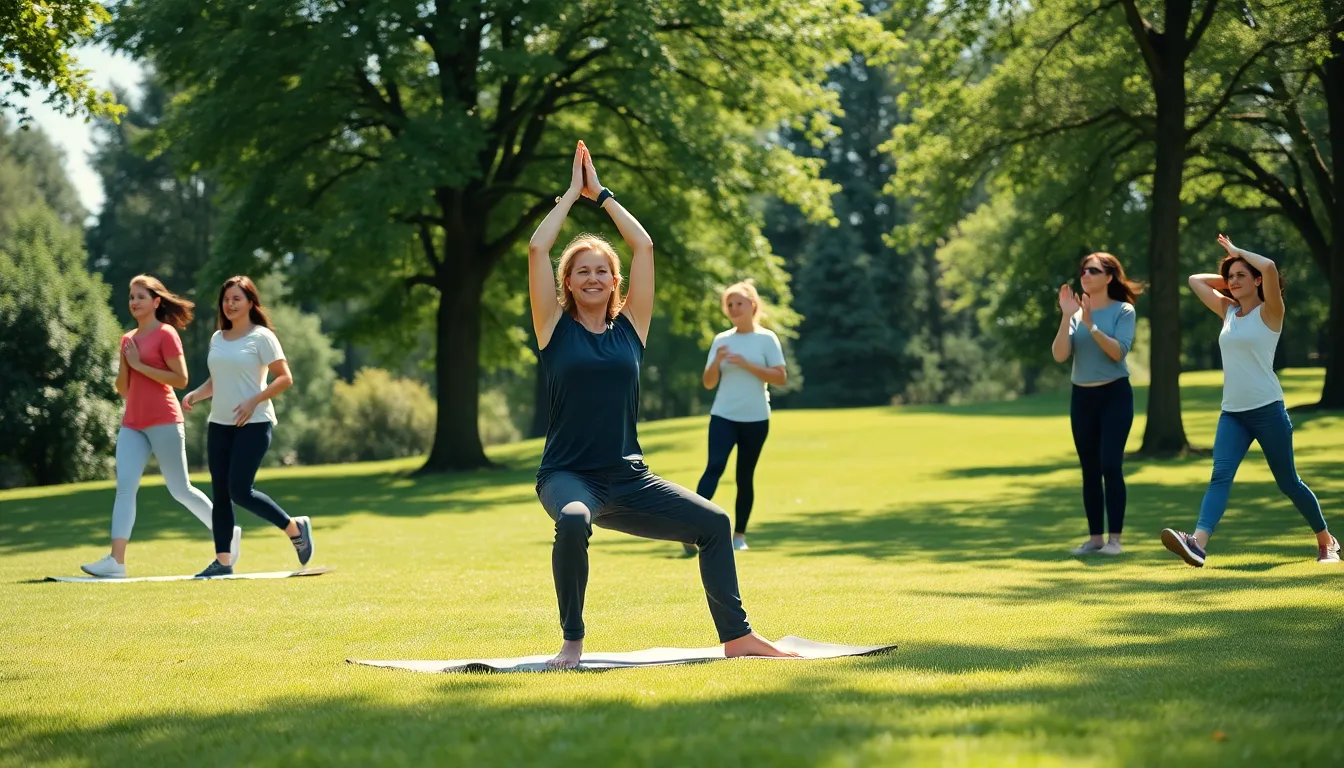Table of Contents
ToggleIn a world that often feels like a chaotic circus, embracing a mindfulness lifestyle can be your ticket to the big top of tranquility. Imagine trading in your daily stress for a front-row seat to the show of your own life. Mindfulness isn’t just a buzzword; it’s a powerful tool that helps people tune into the present moment, leaving behind the mental clutter that clings like last week’s leftovers.
By cultivating mindfulness, individuals can transform the mundane into the magnificent. Whether it’s sipping coffee without scrolling through social media or taking a stroll without thinking about your to-do list, these small shifts can lead to a more fulfilling life. It’s time to ditch the autopilot mode and step into the spotlight of awareness. Get ready to explore how a sprinkle of mindfulness can bring joy, clarity, and a dash of humor to everyday living.
Understanding Mindfulness Lifestyle
Mindfulness lifestyle promotes living in the present moment. This lifestyle fosters deeper awareness and enhances daily experiences.
Definition and Principles
Mindfulness involves paying attention to the present with openness. It encourages non-judgmental observation of thoughts and feelings. Key principles include awareness of breath and observation without attachment. Engaging fully with each moment enhances focus on specific tasks. Mindfulness transforms routine actions into meaningful experiences, allowing individuals to find joy in everyday activities. Practicing gratitude helps reinforce positive feelings associated with the present moment.
Benefits of Embracing Mindfulness
Embracing mindfulness leads to various mental and emotional benefits. It reduces stress by promoting relaxation and increasing resilience. Developing mindfulness enhances emotional regulation, allowing individuals to respond rather than react to situations. Studies show that mindfulness practice improves focus and concentration. Increased self-awareness fosters better relationships through improved communication. Overall, adopting a mindfulness lifestyle contributes to a greater sense of well-being and life satisfaction.
Key Components of a Mindfulness Lifestyle

A mindfulness lifestyle consists of several key components that enhance awareness and presence in daily life. Incorporating these elements can significantly improve overall well-being and life satisfaction.
Mindful Eating
Mindful eating encourages individuals to fully engage with the experience of eating. Practicing this involves slowing down during meals, savoring each bite, and recognizing the body’s hunger cues. By focusing on flavors and textures, he or she can cultivate a deeper appreciation for food. Awareness of portion sizes also plays a critical role, allowing them to enjoy smaller portions without feeling deprived. This approach not only promotes healthier eating habits but also fosters a positive relationship with food.
Mindful Movement
Mindful movement involves being fully present during physical activities. Whether practicing yoga, walking, or engaging in sports, focusing on bodily sensations and breath is essential. Observing movement without judgment enhances the connection between mind and body. Individuals can experience reduced stress and improved physical health through activities that encourage awareness. Engaging in mindful movement helps maintain physical fitness while promoting emotional well-being. This method transforms exercise into a restorative practice rather than a mere routine.
Techniques to Incorporate Mindfulness Daily
Incorporating mindfulness into daily life can significantly enhance well-being and presence. Several practical techniques can support this journey.
Meditation Practices
Meditation serves as a foundational practice for mindfulness. Individuals can set aside even a few minutes daily to focus on thoughts and sensations. Guided meditations available through apps offer structured support. Alternate options include sitting quietly or walking mindfully, paying attention to each step. Regular practice cultivates a more profound awareness and reduces stress.
Breathing Exercises
Breathing exercises play a crucial role in mindfulness routines. Focusing on breath can ground an individual in the present moment. A simple technique involves inhaling through the nose for a count of four, holding for four, and exhaling through the mouth for six. Practicing this several times can bring calmness and clarity, making it easier to navigate daily challenges. Incorporating these exercises throughout the day enhances emotional regulation.
Overcoming Challenges in Adopting a Mindfulness Lifestyle
Adopting a mindfulness lifestyle presents unique challenges that individuals often encounter. Awareness of these hurdles enhances one’s ability to navigate them effectively.
Common Obstacles
Busy schedules create significant barriers to practicing mindfulness. Individuals frequently struggle to find time for meditation or mindful activities during hectic days. Distractions from technology can also hinder focus, pulling attention away from the present moment. Emotional resistance may arise as individuals confront uncomfortable thoughts or feelings during mindfulness practices. Furthermore, a lack of consistency in practice can impede progress, leading to frustration or a sense of failure.
Strategies for Success
Creating a dedicated time for mindfulness practice sets a clear intention. Individuals can start with short sessions of five to ten minutes, gradually increasing the duration as comfort grows. Incorporating mindfulness into daily routines, such as mindful eating or walking, enhances the practice without requiring extra time. Utilizing technology, such as meditation apps, offers accessible guidance and structure. Engaging in supportive communities, either online or in person, fosters accountability and motivation to continue the journey. Celebrating small victories reinforces positive habits and maintains enthusiasm.
Embracing a mindfulness lifestyle can profoundly enhance one’s quality of life. By cultivating awareness and presence in everyday activities, individuals can transform mundane moments into opportunities for joy and connection. The journey towards mindfulness is not without its challenges, but with dedication and the right tools, anyone can navigate these obstacles.
Incorporating practices like mindful eating and movement fosters a deeper connection to both body and mind. As individuals commit to this lifestyle, they often find themselves experiencing reduced stress and improved emotional regulation. Mindfulness isn’t just a practice; it’s a pathway to greater well-being and fulfillment.




